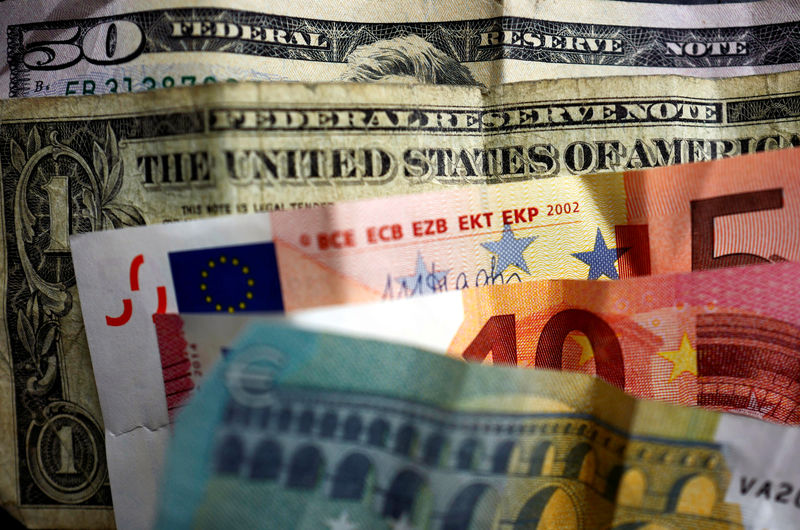US LNG exports surge but will buyers in China turn up?
Investing.com -- The dollar extended losses in early trading in Europe Friday, as higher-yielding currencies advanced on hopes of at least a temporary truce to the U.S.-China trade war.
President Donald Trump downplayed a Bloomberg report that his administration was preparing to do a temporary deal with China, potentially rolling back some of the import tariffs recently imposed on Chinese goods.
“Well, it’s something that people talk about,” Trump told reporters en route to an event late Thursday. “I’d rather get the whole deal done,”
The dollar index, which tracks the greenback against a basket of currencies, fell to its lowest in over a week in early trading and by 3:30 AM ET (0730 GMT) was at 98.07, down 0.2% from late Thursday.
Both the euro and the British pound made solid gains, sterling rising above $1.2400 for the first time in seven weeks as the political and judicial problems of Prime Minister Boris Johnson embolden hopes that the country will avoid a disorderly exit from the European Union at the end of next year.
The euro, meanwhile, is rising despite the European Central Bank’s best efforts to keep it weak with a package of monetary easing measures. By 3:30 AM, it was at $1.1104, up by three-quarters of a cent from immediately before the ECB’s policy decisions.
“We expect the euro to suffer more in the coming months and believe that it is still too early to bet on a stronger euro,” said Nordea Markets analyst Jan von Gerich, who has a target of between $1.07-$1.08 for EUR/USD.
Von Gerich argued that the modest size of the ECB’s new quantitative easing program was a slight disappointment, despite the dovish signal effect of it being left open-ended. He said it was likely that incoming President Christine Lagarde would want to ease policy further in December, not least by raising the ECB’s current limits on how much it can buy of each government’s individual bonds. That would allow the bank to beef up the program if needed.
Emerging currencies continued to rally against a backdrop of easier monetary policy in developed markets. The Russian ruble hit a seven-week high against the dollar, while the offshore Chinese yuan rose to its highest in a month.
The Turkish lira was consolidating just below the three-week highs it hit on Thursday in the wake of the Turkish central bank's 325 basis-point interest rate cut.
The mainland Chinese and Korean markets were closed Friday for holidays, while Japan’s is closed on Monday.
